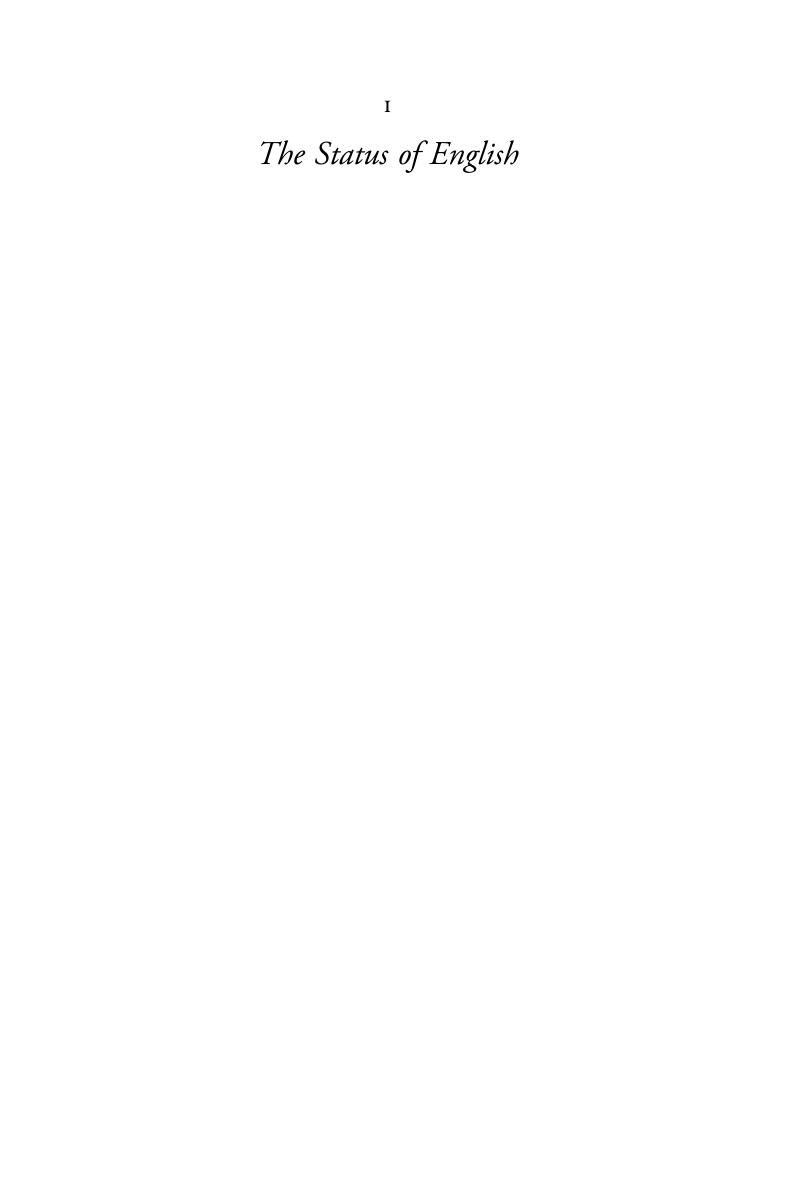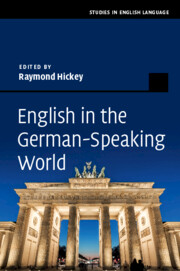Book contents
- English in the German-Speaking World
- Studies in English Language
- English in the German-Speaking World
- Copyright page
- Contents
- Figures
- Tables
- Contributors
- Preface
- Chapter 1 English in the German-Speaking World: The Nature and Scale of Language Influence
- I The Status of English
- II The Transmission of English
- III Domains and Features of English
- IV Beyond Germany
- Index
- References
I - The Status of English
Published online by Cambridge University Press: 11 November 2019
- English in the German-Speaking World
- Studies in English Language
- English in the German-Speaking World
- Copyright page
- Contents
- Figures
- Tables
- Contributors
- Preface
- Chapter 1 English in the German-Speaking World: The Nature and Scale of Language Influence
- I The Status of English
- II The Transmission of English
- III Domains and Features of English
- IV Beyond Germany
- Index
- References
Summary

- Type
- Chapter
- Information
- English in the German-Speaking World , pp. 11 - 74Publisher: Cambridge University PressPrint publication year: 2019
References
References
References
References
- 2
- Cited by

